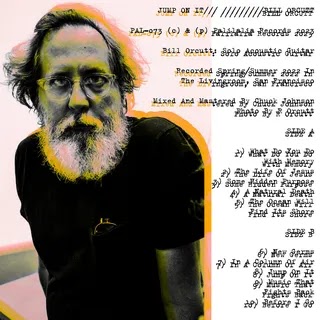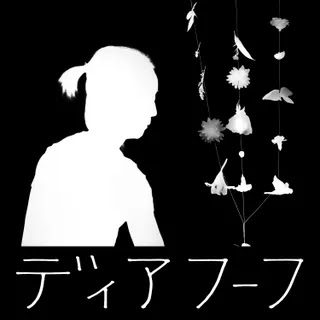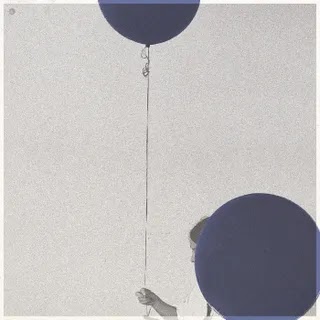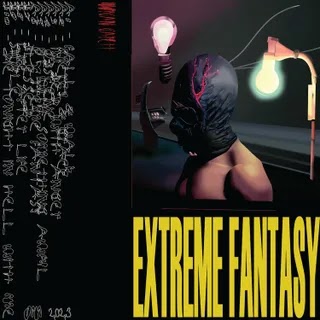Centering her own voice for the first time, Caroline Shaw proves to be a master of collapsing boundaries, whether between her performer-composer roles or the corporeal and the immaterial.
Caroline Shaw’s itemized accomplishments are many: she’s composed celebrated works for vocal and string ensembles, helped to shape Kanye West’s The Life of Pablo, and in 2013, she won a Pulitzer Prize in music for Partita for 8 Voices, becoming the youngest person ever to do so. Though her definitive Partita is a stunning display of human voices in motion, Shaw has never been the lead vocalist herself on an album; she appears most often as a composer, violinist, or ensemble member.
But with Let the Soil Play Its Simple Part, her second album of the year with the exploratory New York ensemble Sō Percussion, Shaw centers herself in a project that captures her earthy inspirations while flexing her capacity for sparkling compositions. Across 10 songs, Shaw gathers some common threads of her music—rhythm and air, literary inspirations, hymns—into a singular work that feels like a gentle invitation to listeners who may not yet recognize the strength of her combined powers.
Shaw is a master of collapsing boundaries, whether between her performer-composer roles or the corporeal and the immaterial. Her voice as a singer and composer shines in these songs, each one like a renewed announcement of Shaw’s “place in the family of things,” as Mary Oliver put it. Let the Soil Play Its Simple Part unfolds like the edge of the woods at twilight: As skittering rhythms clink into place, “To the Sky” swells upward and erupts with the exuberance of wildflowers. “Other Song” glides in on a draft, building up a tumbling overlap of percussion and electronic flickers. Marimbas and steel drums resonate like heavy raindrops, while other percussive rustles bring to mind the dry overlap of wind and cicadas whispering in the trees.
Shaw dissolves the idea that heaven and earth are separate, mutually exclusive places; instead, they are connected by the sky, sand, soil, and sea that she often invokes. She begins from the leap of “To the Sky” before touching back down to the ground on the title track; she returns to the shore from “The Flood Is Following Me” with the knelling “Cast the Bells in Sand.” Sō Percussion are most often serene, but some of their lightest touches are most dramatic. With lyrics culled from James Joyce’s Ulysses, the sound of scraping stones on “A Veil Awave Upon the Waves” triggers a sharp prickle of physical awareness as Shaw contemplates the vacuum of waiting.
Ulysses likewise appears in “The Flood Is Following Me,” and Shaw’s allusions to distant, seemingly unknowable characters stretch further still. “A Gradual Dazzle” borrows its lyrics from Anne Carson’s poem “Room in Brooklyn,” inspired by the Edward Hopper painting of the same name. Hopper, a famous interpreter of solitude, depicts a lone woman facing a blue-and-brick skyline as sunlight spills in through three windows. Shaw carefully stitches these solitary creatures into a sense of belonging, sheltering them in her open and unencumbered compositions.
Throughout her work—including on January’s Narrow Sea, with Sō Percussion, Dawn Upshaw, and Gilbert Kalish—Shaw draws on old Christian hymns, recasting them in a fresh spirit. With “To the Sky,” Shaw transforms an 18th-century song from the Sacred Harp hymnal into a jubilant, sweeping piece that exudes wonder. She closes the album with “Some Bright Morning,” a song from the more recent annals of hymnody. “Celestial shore” has long been one of Christianity’s cooler turns of phrase, and Shaw makes good use of its imagery. Smoothing the music into lightly droning waves, she sounds as though she’s singing from the edge of the horizon, turning hope for eternal release into a reflection on the scale of eternity itself.
Shaw’s deft way of distilling the secular from the sacred also works in reverse. Strip the drum track, and ABBA’s “Lay All Your Love on Me” cuts close to a grandiose pipe-organ choral arrangement; Shaw’s sparse reinterpretation invokes the divine qualities of a great pop song. It feels akin to a benediction, even as it rings with a kind of light desperation. Such is the quality of devastating loves, as described in hymnals and Hot 100 singles alike: surrendering some of your flesh and blood in earnest, knowing that it could invite profound betrayal.
Whether inverting an old song or sculpting a whirlwind from dust, Shaw’s work highlights the divine in the ordinary. With Let the Soil Play Its Simple Part, she reaches toward the peaceful bewilderment of feeling ensconced in the great web of everything, the mysterious force which exists in the words of a 300-year-old hymn, the open canvas of the sky, the pop song leaking through the radio. These things are not apart from us, she suggests; when we tune into the right wavelength, it is we who are a part of them.
















0 comments:
Post a Comment